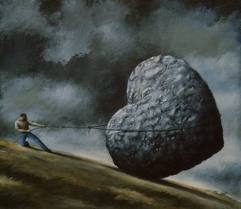Do you remember those troubling times when after writing your first book you are faced with the unenviable task of finding an agent and then a publisher? I heard that J. K. Rowling’s book Harry Potter and the Philosopher’s Stone was rejected 87 times. I don’t know about you, but I think I would have given up long before that.
Do you remember when you suddenly found an agent and they were actually prepared to add you–a mere nobody in the world of literature–to their long list of well-seasoned, published, and successful authors? Oh, what unbelievable joy! And then, by a miracle, it seemed you had a publisher, and not just any publisher but an ‘A’ list one at that.
 Your dreams have become a reality and a bright new world is opening its golden doors to you. Your name in silver lights, your book in all the shop windows of the world. Important people, who before wouldn’t give you the time of day, suddenly are keen to chat. Success is contagious, isn’t it?
Your dreams have become a reality and a bright new world is opening its golden doors to you. Your name in silver lights, your book in all the shop windows of the world. Important people, who before wouldn’t give you the time of day, suddenly are keen to chat. Success is contagious, isn’t it?
Even when standing on the top of the mountain, though, storms may come. The views are fine at first but we should not forget that the mountain is not of our making. We don’t own it. We don’t control what we stand upon.
The decision by my publisher, without warning, to pull out of the fiction market altogether brought my mountain crashing down. I was suddenly cast into the valley of despair and left alone, looking up at a crumpled mass of dreams. My journey to the top, which I had imagined was completely irreversible, was in a moment dashed to pieces.
Amidst all the confusion and the devastation, in all the pain and grief, a still small voice struggled to be heard. At first I did not want to hear words of consolation, nor of encouragement. Not from my wife. Not from my friends.
Certainly not from God.
I wanted to have my say! I was angry at God and shouted, “What the hell are you doing with my life? Is that the kind of God you really are? To build me up, to set me on the top of the pile, only to tear me down?”
After a while the anger dissipated and, before I let depression seek me out, I heard the still small voice say, “The most important journey in life is not to reach the top of the mountain, but to journey inward and find Me in the depths of your own being.”
This was a truth I knew. I had long, long ago been set free by His truth. I knew that He dwelt in me, deep in my spirit. John 15:15 declares, “If you remain in Me and I in you, you will bear much fruit; apart from Me you can do nothing.”
Whose mountain top was I standing on?
St. Augustine’s commentary on the Christian faith says:
 Enter into yourself. Leave behind all noise and confusion. Look within yourself and see whether there be some sweet hidden place within where you can be free from noise and argument, where you need not be carrying on your disputes, and planning to have your own stubborn way. Hear the word in quietness that you may understand it.
Enter into yourself. Leave behind all noise and confusion. Look within yourself and see whether there be some sweet hidden place within where you can be free from noise and argument, where you need not be carrying on your disputes, and planning to have your own stubborn way. Hear the word in quietness that you may understand it.
My wife Linda gave me some very good advice once: ‘”Let God be God, in all your life. He knows what He is doing.”



















